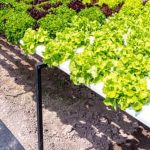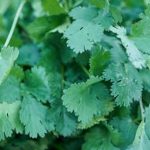Treated pine is a popular choice for garden structures, but the question remains: is treated pine safe to use in vegetable gardens? Treated pine refers to wood that has been chemically treated to enhance its durability and resistance to decay. This process involves impregnating the wood with preservatives, making it ideal for outdoor use where exposure to moisture and insects is common.
One of the main reasons why treated pine is commonly used in gardening is its affordability and availability. It provides a cost-effective option for building raised beds, fences, trellises, and other garden structures. Additionally, treated pine can last for many years without succumbing to rot or insect damage, making it a practical choice for long-term garden projects.
While there are definite benefits to using treated pine in vegetable gardens, there are also concerns regarding its safety. Some studies have suggested that chemicals used in the treatment process can potentially leach into the soil and affect plant growth. As such, it is important to understand both the advantages and potential risks associated with using treated pine in your garden before making a decision on whether or not to incorporate it into your gardening plans.
What Is the Definition of Treated Pine Wood and How Is It Processed for Use in Garden Structures?
Treated pine wood is a common choice for garden structures such as raised beds, trellises, and fences due to its durability and resistance to decay. Pine wood is treated with chemicals to enhance its longevity and protect it from rotting when exposed to moisture in the garden environment. The treatment process involves impregnating the wood with preservatives that help prevent fungal decay, insect infestation, and other forms of deterioration.
Here are some key points regarding the definition and processing of treated pine wood for use in garden structures:
- Definition: Treated pine refers to pine wood that has been chemically treated with preservatives to improve its lifespan and performance in outdoor environments.
- Treatment Process: The treatment process typically involves pressure-treating the pine wood with copper-based or arsenic-based compounds that penetrate deep into the wood fibers, providing long-lasting protection against decay.
- Benefits: Treated pine is more resistant to moisture, insects, and fungal decay compared to untreated pine wood, making it a popular choice for garden structures that are exposed to the elements.
While treated pine offers several advantages for use in vegetable gardens, there are also concerns about its safety. Some studies have raised questions about the leaching of chemicals from treated wood into the soil, potentially affecting plant growth and soil health. It is essential for gardeners to weigh these risks when considering using treated pine in their vegetable gardens and take necessary precautions to minimize any potential negative effects.
Overall, understanding the definition of treated pine wood and how it is processed can help gardeners make informed decisions about whether to use it in their vegetable gardens. By being aware of the benefits and concerns associated with treated pine, individuals can take steps to mitigate any risks while still reaping the advantages this material has to offer for garden structures.
Benefits of Using Treated Pine in Vegetable Gardens
Treated pine is a popular choice for gardeners when it comes to constructing raised beds, fencing, and other structures in vegetable gardens. This type of wood is treated with preservatives to prolong its lifespan and protect it from rotting, decay, and insect infestations. Treated pine is known for its affordability, durability, and versatility, making it an attractive option for many gardeners looking to enhance their vegetable gardens.
One of the main benefits of using treated pine in vegetable gardens is its longevity. The preservative treatment process helps extend the life of the wood, allowing gardeners to enjoy their structures for years to come without worrying about decay or deterioration. This long-lasting quality makes treated pine a cost-effective investment for those looking to create a sustainable and durable garden space.
In addition to its durability, treated pine is also easy to work with and can be customized to fit specific gardening needs. Whether you’re building raised beds, trellises, or pathways in your vegetable garden, treated pine provides a versatile material that can be tailored to your preferences. Its natural appearance blends seamlessly into outdoor environments, adding a rustic charm to your garden while providing a sturdy foundation for your plants to thrive.
Concerns About the Safety of Treated Pine in Vegetable Gardens
Treated pine is a popular choice for garden structures like raised beds, fences, and trellises due to its affordability and durability. However, there are growing concerns about the safety of using treated pine in vegetable gardens.
Treated pine is wood that has been infused with chemicals to increase its resistance to pests, decay, and rot. The most common treatment for pine wood involves using chromated copper arsenate (CCA) or other chemical compounds that can be harmful to humans and the environment.
One of the primary concerns regarding the use of treated pine in vegetable gardens is the leaching of chemicals into the soil. As the treated pine breaks down over time, these chemicals can be released into the soil and taken up by plants, potentially contaminating fruits and vegetables that are consumed.
This raises questions about the overall safety of using treated pine in an environment where edibles are being grown. Additionally, when these chemicals leach into the soil, they can also have negative effects on beneficial microorganisms that play a crucial role in maintaining soil health.
Research has shown that certain chemicals used in treating pine wood can have detrimental effects on plant growth and soil ecology. For example, arsenic, which is a component of CCA-treated wood, is known to inhibit root growth and nutrient uptake in plants.
Studies have also indicated that prolonged exposure to these chemicals can lead to changes in soil pH levels and disrupts the balance of microbial populations in the soil. As such, many experts caution against using treated pine in vegetable gardens where food crops are being cultivated.
| Concerns About Treated Pine | Implications |
|---|---|
| Potential leaching of chemicals into soil | Risk of contaminating edible crops |
| Negative impact on beneficial microorganisms | Disruption of soil health and ecosystem |
| Inhibition of root growth and nutrient uptake in plants | Adverse effects on plant growth and development |
Research and Studies on the Effects of Treated Pine on Plant Growth and Soil Health
When considering the use of treated pine in vegetable gardens, it is crucial to understand how this material may impact plant growth and soil health. Numerous research studies have been conducted to examine the effects of treated pine on plants and the surrounding environment. These studies aim to provide valuable insights into the safety and sustainability of using treated pine in gardening practices.
Effects on Plant Growth
Studies have shown that when treated pine is used in vegetable gardens, there is a potential risk of chemical leaching from the wood. This leaching can introduce harmful substances into the soil which may negatively affect the growth and development of plants.
Some chemicals commonly found in treated pine, such as arsenic and copper, can be toxic to plant roots if they are absorbed in high concentrations. As a result, plant growth may be stunted or distorted when exposed to these contaminants.
Effects on Soil Health
Research has also indicated that the presence of treated pine in vegetable garden structures can impact soil health over time. The chemicals leaching from treated pine wood can alter the pH levels of the soil, making it unsuitable for growing certain types of plants.
Additionally, these chemicals can accumulate in the soil and persist for extended periods, posing long-term risks to both plant and microbial life in the garden. It is essential to be mindful of these potential effects on soil health when deciding whether to use treated pine in vegetable gardens.
Tips on Using Treated Pine Safely in Vegetable Gardens
Treated pine is a popular material used in gardening for its durability and resistance to decay, making it an attractive choice for constructing garden beds, trellises, raised planters, and other structures. However, there are concerns about the safety of using treated pine in vegetable gardens due to the chemicals used in the treatment process.
When selecting treated pine for your vegetable garden, it’s important to choose products that are specifically labeled as safe for use around plants and food crops. Look for materials that are treated with non-toxic preservatives such as Alkaline Copper Quaternary (ACQ) or Copper Azole (CA-B), which do not contain arsenic or other harmful chemicals.
Here are some tips on how to use treated pine safely in your vegetable garden:
- Always use a barrier such as heavy-duty plastic sheeting to line the inside of raised beds or planters made from treated pine to prevent direct contact between the wood and the soil.
- Avoid using treated pine in areas where edible plants with shallow root systems will be grown, as they may come into contact with any leached chemicals.
- Consider sealing the surface of treated pine structures with a non-toxic sealant to create an additional layer of protection against chemical leaching.
By following these tips and being mindful of potential risks associated with treated pine, you can enjoy the benefits of using this material in your vegetable garden while minimizing any negative effects on plant growth and soil health. Remember that proper precautions and maintenance are key to ensuring a safe gardening environment for your edible plants.
Alternative Materials to Consider for Garden Structures in Place of Treated Pine
When considering materials for garden structures, it is essential to prioritize the safety of your plants and soil. While treated pine may be a popular choice due to its durability and affordability, there are alternative materials that can serve as excellent substitutes without compromising the health of your vegetable garden.
Cedar
One of the top choices for garden structures is cedar wood. Known for its natural resistance to insects and decay, cedar is a great option for raised beds, fences, trellises, and other garden structures. This type of wood does not require chemical treatment like pine, making it a safer choice for growing vegetables.
Locally Sourced Hardwoods
Another sustainable option to consider is using locally sourced hardwoods for your garden projects. Woods like oak or black locust are naturally durable and resistant to rot without the need for chemical treatments. By choosing hardwoods from local suppliers, you can reduce carbon emissions from transportation while supporting your community.
Recycled Plastic or Composite Materials
For those looking for a low-maintenance and long-lasting option, recycled plastic lumber or composite materials are worth considering. These materials are made from recycled plastics and wood fibers, creating a durable and eco-friendly alternative to traditional wood. They do not contain harmful chemicals and provide a long lifespan for your garden structures.
By exploring these alternative materials to treated pine, you can create a safe and sustainable environment for your vegetable garden. Consider the durability, environmental impact, and safety factors when choosing the right material for your garden structures to ensure a thriving growing season ahead.
Conclusion
In conclusion, the question “Is treated pine safe to use in vegetable gardens?” is one that remains debated among gardeners and environmentalists alike.
Treated pine, although commonly used in gardening due to its affordability and durability, raises concerns about the potential risks it poses to both plant health and soil quality. While there are benefits to using treated pine in vegetable gardens, such as its resistance to decay and pests, it is crucial for gardeners to take precautions when utilizing this material.
Research and studies on the effects of treated pine on plant growth and soil health have shown mixed results. Some studies suggest that the chemicals used in treating pine wood can leach into the soil over time, potentially harming plants and contaminating produce. It is important for gardeners to weigh these risks carefully before deciding whether or not to use treated pine in their vegetable gardens.
Ultimately, if choosing to use treated pine in a vegetable garden, it is recommended that gardeners take steps to minimize potential risks. This can include lining raised beds with a barrier such as heavy-duty plastic or using a sealant to prevent chemical leaching.
Additionally, regularly monitoring plant health and soil quality can help identify any potential issues early on. While alternative materials like untreated cedar or composite lumber may be pricier options, they offer safer alternatives for those looking to prioritize sustainability and safety in their vegetable gardens.
Frequently Asked Questions
Is Treated Pine Safe for Veggie Garden?
Treated pine is generally considered safe for a veggie garden, as long as the correct type of treatment was used. It is important to ensure that the treatment used is safe for use around edible plants before using treated pine in a vegetable garden.
Can You Use Treated Lumber in a Vegetable Garden?
Using treated lumber in a vegetable garden can be a controversial topic. While some argue that the chemicals used in treating lumber can leach into the soil and be absorbed by plants, others believe that modern treatments are safe for use in vegetable gardens.
It’s essential to research the specific type of treatment used and consult with experts before making a decision.
Is Lowe’s Pressure Treated Wood Safe for Gardens?
When it comes to Lowe’s pressure-treated wood for gardens, it is crucial to consider the type of treatment applied to the wood. Pressure-treated wood from Lowe’s may contain chemicals like arsenic, which can be harmful if they leach into the soil and are absorbed by plants.
It is advisable to look for alternatives or ensure that the wood is safe for use around edible plants before using it in your garden.

If you’re looking to get into vegetable gardening, or are just looking for some tips on how to make your current garden better, then you’ve come to the right place! My name is Ethel and I have been gardening for years. In this blog, I’m going to share with you some of my best tips on how to create a successful vegetable garden.





